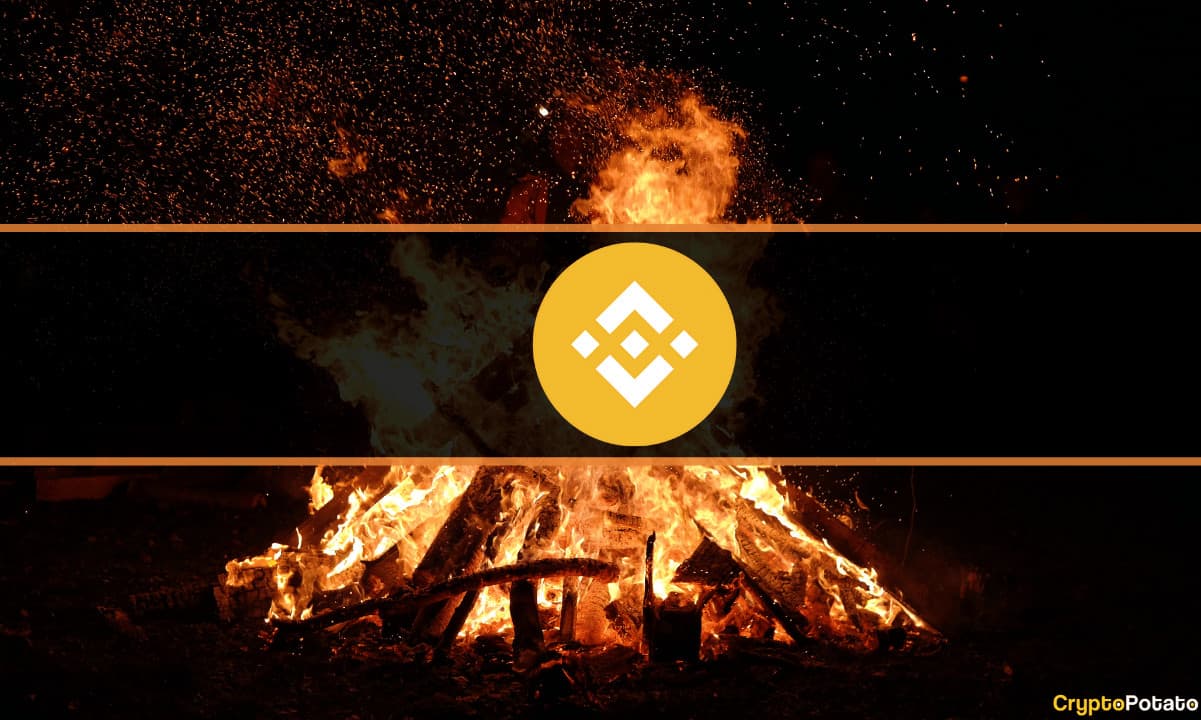

The world’s largest cryptocurrency exchange – Binance – completed its 24th quarterly burn of its native token, burning 1,991,854 BNB.
The development, carried out every three months, should help the company reduce the overall supply of the coin to 100 million.
- Binance informed that its most recent BNB burn equaled approximately $484 million.
- The process also included 747.51 BNB that was burned via the Pioneer Burn Program – a feature that helps customers who have lost access to their BNB tokens.
- Binance’s CEO – Chanpeng Zhao (CZ) – weighed it on the matter, saying said everything was done “according to the public algorithm.”
The quarterly #BNB burn is done, according to the public algorithm.
I was told there will be some more on-chain (large) transactions shortly, to further distribute/spread the coins to more addresses. Nothing to be alarmed about.
— CZ
Binance (@cz_binance) July 19, 2023
- Sending a certain amount of BNB tokens each quarter to an address that no one can access is a strategy that Binance adopted in 2017 (by the time of the launch of the native coin).
- The exchange has burned billions of dollars worth of BNB so far, aiming to eventually decrease the token’s overall supply by 50%.
- CZ also revealed there might be some additional “on-chain (large) transactions shortly” that will distribute the assets to more addresses. “Nothing to be alarmed about,” he assured.
- BNB’s USD valuation remained relatively unfazed by the most recent burn, currently trading at around $241 (per CoinGecko data). Its market capitalization has also mimicked yesterday’s figures standing at almost $38 billion.
SPECIAL OFFER (Sponsored)
Binance Free $100 (Exclusive): Use this link to register and receive $100 free and 10% off fees on Binance Futures first month (terms).
Binance Free $100 (Exclusive): Use this link to register and receive $100 free and 10% off fees on Binance Futures first month (terms).
PrimeXBT Special Offer: Use this link to register & enter CRYPTOPOTATO50 code to receive up to $7,000 on your deposits.
The post appeared first on CryptoPotato







